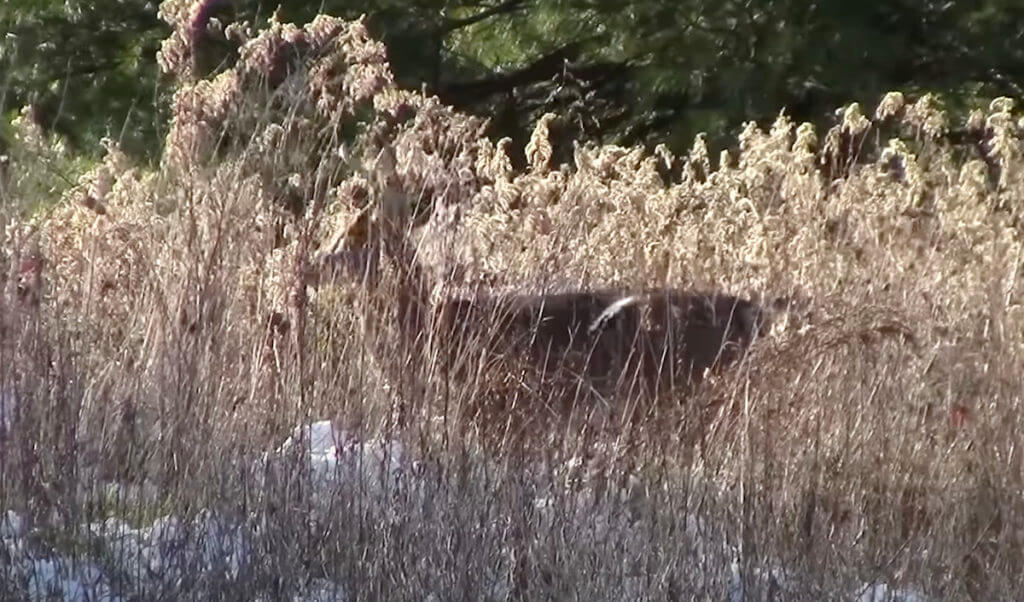
Colorado Parks and Wildlife (CPW) may reduce the number of hunting licenses by over 40% due to severe winter conditions the agency announced on Monday.
Thousands of elk, deer and antelope have been forced to migrate out of the northwest region of Colorado, and many have died of starvation. The deep, hard-packed snow has made it difficult for the animals to find enough food, and many have been grazing along roads. Additionally, vehicle collisions with wildlife have increased due to the extreme conditions, according to CPW officials.
Since the beginning of the hunting season, the National Weather Service’s Maybell weather station has measured more than 80 inches of snow in the area. The heavy snowfall and abrasive winds have been devastating for the region’s wildlife causing a food shortage for big game.
“It’s tough,” said Assistant Area Wildlife Manager Mike Swaro. “There’s no other way to describe it. We typically see some mortality from starvation every winter. That’s just nature, not every animal survives. This year it feels like all we’re seeing is starving or dying animals.”
CPW has been working to provide food and shelter for the animals, but the outlook is not good. According to their estimates, up to 40% of the elk population in northwestern Colorado might not survive the winter. According to a CPW post on Facebook, their best option for conservation is a reduction in hunting licenses.
“Using the data collected over the past several months, and anticipated additional losses throughout the spring, biologists are taking conservative approaches with this year’s license recommendations,” the post states. “Our biologists are recommending significant reductions in the number of licenses for elk and deer in the Bears Ears and White River DAUs, and pronghorn in the Great Divide DAU for the 2023 big game season.”
SEE ALSO: NSSF Celebrates $1.6 Billion Apportioned to States for Conservation
The hunting license reduction will affect Colorado’s northwest region, which is home to some of the state’s largest elk herds.
“The White River herd and the Bears Ear herd are the largest two single elk herds in the world right now,” said Kyle Lopez, owner of KB Outdoors, a hunting outfitter in Divide, Colorado.
Lopez, whose family has been ranching and hunting on land in Teller County for over a century, believes that healthy wildlife numbers in Colorado require good management, including added hunting opportunities. However, this year hunters will have to deal with the hunting license reduction.
“As hunters, there are times where we have to make compromises, and this is a time where we probably need to make a little bit of a compromise,” said Lopez. “If we compromise one year, the next 10 years… could probably be even better than they were.”
A spokesperson for CPW, Jason Clay, says the reduction will protect wildlife populations that have been struggling to survive the harsh winter conditions.
“We’ve had a lot of snow this year, and it’s been really tough on the animals,” Clay said. “We’re seeing a lot of dead and starving animals, and we need to take steps to ensure that the populations can recover.”
State biologists are monitoring the movements and estimating survival rates of deer in the White River herd and elk in the Bear’s Ears herd. It is unclear whether the animals will return to the region after migrating in search of food.
Even though the harsh winter has been a struggle for Colorado wildlife, the extra snow is likely to replenish natural springs in the area. This caveat should actually help the populations thrive over the summer, according to biologists.
Available on GunsAmerica Now
*** Buy and Sell on GunsAmerica! ***












Does anyone actually believe this? I bet the reductions will magicly impact in-state hunters but have no impact on high dollar tags for out of state hunters.